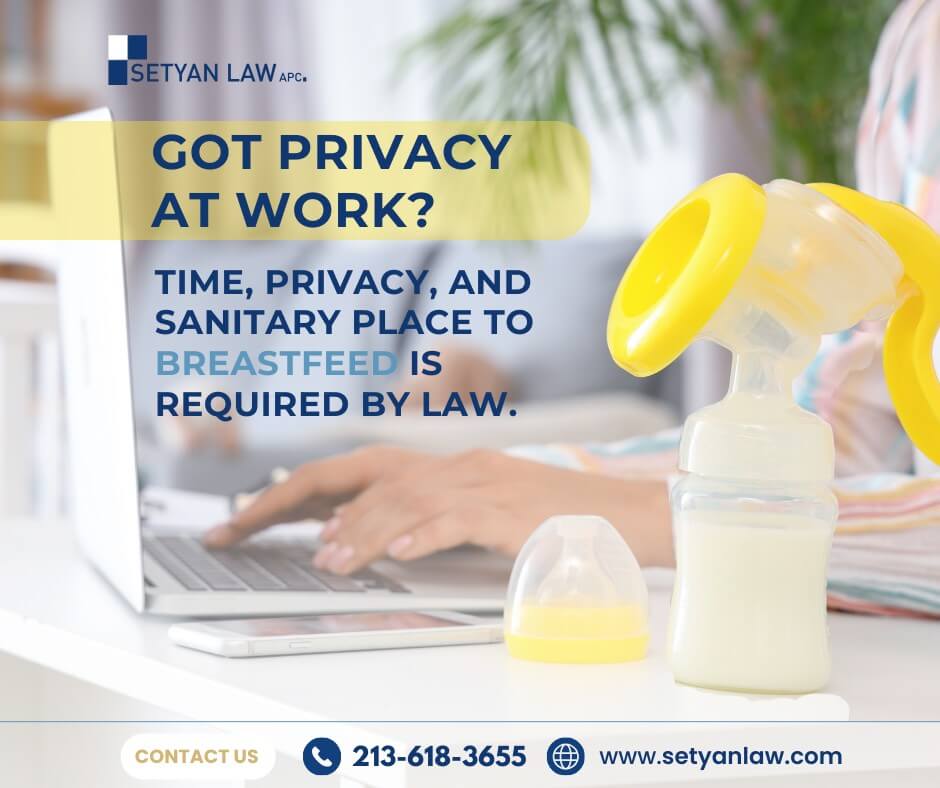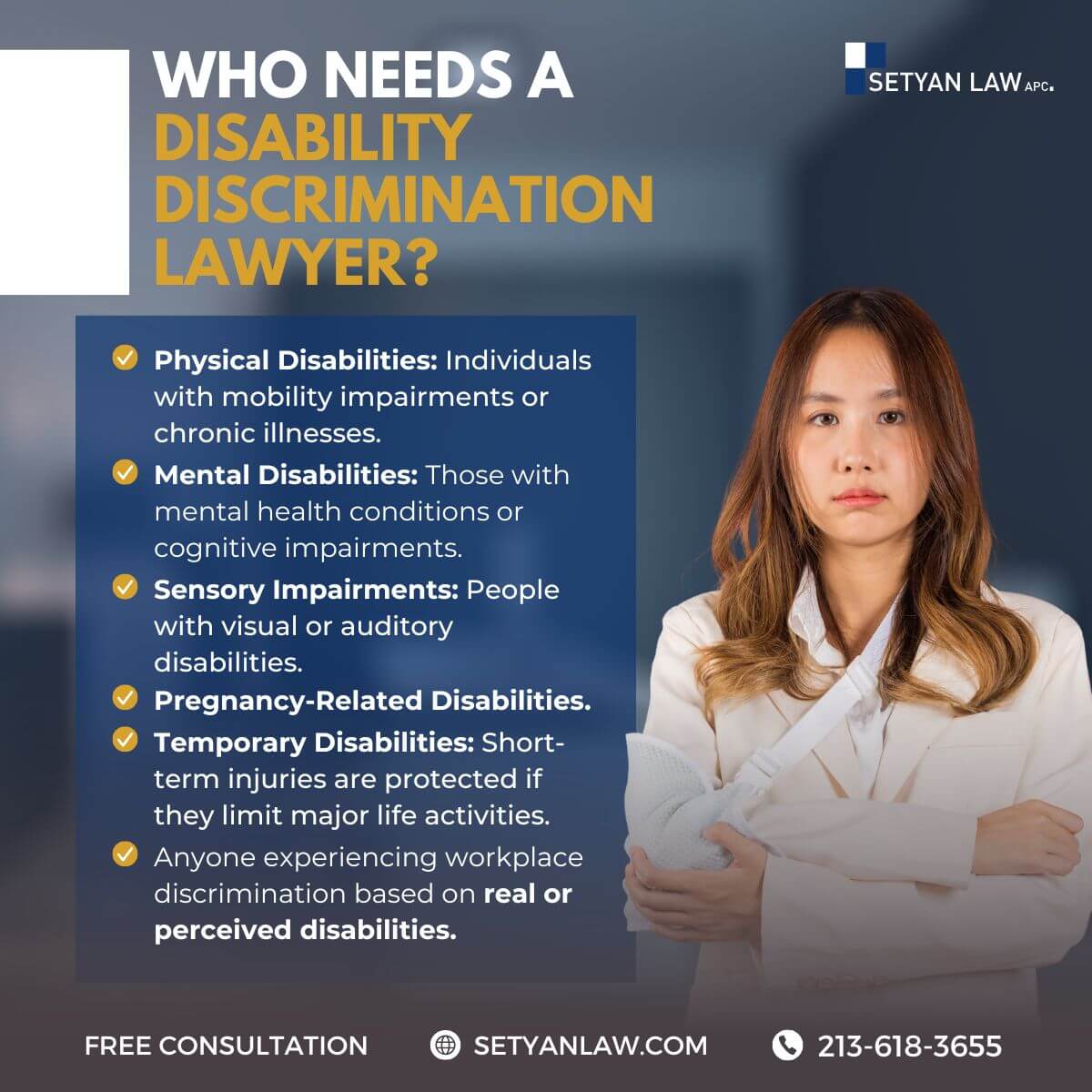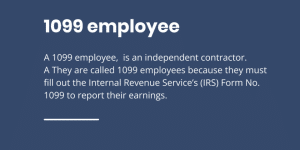Updated November 17, 2025
When Your Reasonable Accommodation is Denied: A Step-by-Step Guide
Having your reasonable accommodation denied can feel like hitting a brick wall in your workplace journey. Approximately 30% of accommodation requests face initial rejection, leaving many workers uncertain about their next steps.
When employers dismiss your legally protected needs, the impact extends beyond workplace comfort—it affects your ability to perform essential job functions and can jeopardize your career advancement. However, a denial doesn't mean the end of your quest for appropriate accommodations.
The Americans with Disabilities Act provides specific protections, though navigating its provisions requires understanding both your rights and the proper channels for appeal. Fortunately, there's a structured approach to challenging these denials effectively.
This step-by-step guide will walk you through understanding why your request was rejected, gathering supporting documentation, exploring internal resolution options, accessing external support, and considering legal action when necessary. By following these strategic steps, you'll be better equipped to advocate for the workplace accommodations you rightfully deserve.
Understand Why Your Request Was Denied
The first crucial step after your reasonable accommodation request is denied involves understanding exactly why it was rejected. This knowledge serves as the foundation for your next actions and helps determine whether the denial was legally justified.
Ask for a written explanation
Initially, request a written explanation for the denial from your employer. While the ADA doesn't specifically require employers to provide written denials (except for federal executive branch agencies under Executive Order 13164), nothing prevents you from asking for one [1]. This creates a valuable paper trail that can serve as evidence if you need to pursue the matter further.
Send a follow-up email requesting the specific reasons for the denial. Your message should be professional and straightforward, simply asking for clarification about why your accommodation request was rejected. This approach formalizes your effort to seek information and creates documentation of your attempt to continue the interactive process [1].
Review the employer's reasoning
After receiving an explanation, analyze it carefully. Employers deny accommodation requests for several common reasons:
- They believe the accommodation would be too expensive
- They consider implementation too difficult
- They think it would fundamentally alter the nature of your job [2]
- They lack knowledge about available accommodations [2]
- They need additional documentation about your disability [1]
A legitimate denial letter should clearly state what you requested, why it wasn't approved, and how the decision was made [3]. Vague explanations like "business needs" without specific details are generally insufficient to justify a denial under the ADA [4]. The explanation should connect directly to your job duties and workplace limitations [3].
Check if the denial cites undue hardship
Notably, "undue hardship" is the most common legal justification employers use to deny reasonable accommodations. This is defined as "an action requiring significant difficulty or expense" when considered alongside factors like the employer's size, resources, and operational structure [5].
The law sets a high bar for establishing undue hardship—it's not merely an inconvenience or small burden for the employer [6]. Furthermore, the burden of proof rests with your employer to demonstrate that your requested accommodation would cause genuine undue hardship [3].
If your employer claims undue hardship, request detailed documentation of:
- Specific costs involved
- Operational impacts
- Safety concerns
- Alternative accommodations they considered [7]
Additionally, ask whether they investigated tax incentives or external funding sources that might offset accommodation costs [7]. If your employer denies your request based on undue hardship but refuses to provide specific justification or consider alternatives, this may indicate they're not fulfilling their legal obligations [7].
Understanding the reasoning behind your denial is essential because it helps you determine whether there's any recourse for not receiving the accommodation you need [1]. With this knowledge, you can strategically plan your next steps.
Gather Documentation and Clarify Your Needs
After identifying why your accommodation request was denied, your next critical task is building a strong case through proper documentation and clear communication. A strategic approach to gathering evidence strengthens your position considerably during the appeal process.
Document your original request
Creating a comprehensive "paper trail" is essential when your reasonable accommodation is denied. Begin by collecting all communications related to your initial request, including:
- Emails and letters exchanged with your employer
- Notes from relevant meetings or phone calls
- Copies of any forms you submitted
- Dated records of verbal conversations
This documentation serves as a clear timeline showing your efforts to engage with your employer throughout the interactive process. Consequently, if you submitted your request verbally, follow up with an email summarizing the conversation to establish a written record. When your employer communicates decisions verbally, send a confirmation email recapping what was discussed to ensure you have their statements in writing.
Provide additional medical or job-related info
Medical documentation forms the backbone of most accommodation requests, especially when your disability isn't obvious. According to EEOC guidelines, employers may request documentation to verify your disability status and accommodation needs, though they cannot ask for complete medical records as this exceeds their limited right to obtain information.
Sufficient medical documentation should include:
- A description of your impairment's nature, severity, and duration
- An explanation of the activities your impairment limits
- Clear connection between your limitations and job functions
- Substantiation for why you need the requested accommodation
Remember that employers should only request medical information when the disability or accommodation need isn't obvious or already known. Therefore, ask your employer to specify exactly what additional information they need rather than submitting to overly broad requests.
Clarify how the accommodation helps you perform essential duties
The most compelling argument for any accommodation is demonstrating its direct connection to your ability to perform essential job functions. Accordingly, explain specifically how workplace barriers impact your performance and how your requested accommodation addresses these challenges.
Be prepared to articulate:
- Which specific job duties are affected by your disability
- How your current limitations affect your ability to perform these tasks
- Precisely how your requested accommodation would enable you to meet job requirements
During this process, maintain focus on job-related needs rather than personal preferences. The ADA requires accommodations that enable equal opportunity to "perform the essential functions of a job" – not simply accommodations that might be convenient or comfortable. Moreover, be honest about your needs rather than minimizing them, as clear communication facilitates productive dialog with your employer about effective solutions.
Throughout this documentation phase, maintain ongoing communication with your employer. The interactive accommodation process should continue even after an initial denial, with both parties working toward finding an effective solution that addresses your disability-related limitations without causing undue hardship.
Explore Internal Resolution Options
After gathering your documentation, pursuing internal resolution channels offers the most direct path to resolving your accommodation denial. Before escalating to external agencies, exhaust all options within your organization first.
Request a meeting to restart the interactive process
The interactive process—a collaborative dialog between you and your employer—remains your most powerful tool even after an initial denial. In fact, employers have a legal obligation to participate in this process in good faith, not merely going through the motions.
To restart this process effectively:
- Send a formal written request for a meeting via email
- Clearly state your intention to revisit your accommodation needs
- Propose specific dates and times to demonstrate your commitment
- Mention any new documentation you've gathered since the initial denial
During this meeting, focus on solutions rather than grievances. As stated by the EEOC, "Communication is a priority throughout the entire process, particularly where the specific limitation, problem, or barrier is unclear; where an effective accommodation is not obvious; or where the parties are considering different forms of reasonable accommodation" [8]. Typically, the decision maker should contact you "as soon as practicable, preferably within 7 business days after the request is made" [8].
Should your original request seem unworkable, come prepared with alternative accommodation ideas. The law requires an ongoing dialog—if your needs change or an accommodation stops working, you have the right to restart this conversation at any point during your employment.
Check if your company has an appeal process
Many organizations maintain formal procedures for appealing accommodation denials. First and foremost, consult your employee handbook or intranet for information about these processes.
Some company appeal processes might involve:
- Submitting a form to human resources
- Review by an accommodation appeals committee
- Escalation to higher management levels
- Specific timeframes for appeal submission
Given these points, reach out to your human resources department directly if you can't locate written policies. Even without a formal appeal structure, you may still request reconsideration by "going up the chain of command" [1]. In government agencies, appeals often follow very specific protocols—federal employees should "submit a request for review by a second level supervisor or another designated management official, depending on the agency's policy" [9].
Involve HR or a union representative if available
Human resources professionals often possess specialized knowledge about accommodation requirements and can serve as neutral intermediaries between you and your direct supervisor.
For unionized workplaces, union representatives provide particularly valuable support. "Some employees might be able to receive support during the appeal process from a union representative, if applicable" [1]. Even more significantly, "the union cannot discriminate against workers with disabilities, so if the union is allowing workers with FMLA restrictions to not work overtime, the union may be discriminating against you due to your disability" [10].
State and local government employees should contact their ADA coordinator, while federal employees can reach out to their agency's EEO Counselor to learn about internal appeal options [1]. Throughout this process, maintain detailed records of all communications with these representatives.
Remember that internal resolution saves everyone time, money, and stress compared to external complaints. For this reason, most employers genuinely want to find workable solutions, especially once they understand their legal obligations in the interactive process.
Escalate to External Support Channels
When internal channels prove ineffective, external support options become vital for addressing your reasonable accommodation denial. These resources provide specialized expertise and enforcement powers that individual employers must respect.
Contact a state protection and advocacy agency
State protection and advocacy agencies possess legal authority to represent individuals with disabilities facing discrimination. First and foremost, these agencies can provide critical legal support throughout your case [1].
Unlike employer-based resources, protection and advocacy agencies operate independently and typically offer free or low-cost services. To locate the appropriate agency for your state:
- Use JAN's state protection and advocacy directory [1]
- Visit the National Disability Rights Network website for state-based resources [11]
- Contact your state's division on human rights or civil rights [12]
The advantage of working with these agencies is their expertise with disability discrimination cases and familiarity with state-specific protections that may exceed federal standards.
File a complaint with the EEOC
The Equal Employment Opportunity Commission (EEOC) enforces the Americans with Disabilities Act. Filing an EEOC complaint is mandatory before pursuing a lawsuit against your employer for disability discrimination [13].
Be aware of strict time limits—you must file within 180 days of the denial in most cases, although this extends to 300 days in states with their own anti-discrimination laws [13]. You can file:
- Online through the EEOC Public Portal
- In person at an EEOC office
- By mail
Your complaint should include:
- Your contact information
- Your employer's name and address
- Details of the discrimination (denied accommodation)
- Timeline of events [2]
Subsequently, the EEOC will notify your employer and begin an investigation that may include interviews and document reviews. Beyond investigation, the EEOC often offers mediation as an alternative to litigation [2].
Reach out to a disability rights organization
Numerous disability advocacy organizations provide valuable guidance during accommodation disputes. Although they lack enforcement powers, these organizations offer:
- Educational resources about your rights
- Assistance interpreting laws and regulations
- Guidance on navigating complex processes
- Referrals to appropriate legal resources
Notable national organizations include the Disability Rights Education & Defense Fund (DREDF), which provides legal support specifically for employment discrimination cases [14], and The Arc, which advocates for people with intellectual or developmental disabilities [11].
Nevertheless, organizations with expertise in your specific disability may offer the most relevant advice. The Council of Parent Attorneys and Advocates focuses on educational opportunities, despite their primary focus being education, they may assist with workplace issues for young adults [11].
Despite the many external channels available, timing is essential—New York's Division of Human Rights, for instance, requires complaints within one year of the alleged discrimination [12].
Consider Legal Action if Necessary
Should previous efforts fail to resolve your accommodation denial, legal action might become your final recourse. This approach requires careful preparation and understanding of your legal rights.
Consult a disability discrimination attorney
Seeking legal counsel is a critical step in evaluating your case's strength. A specialized disability discrimination attorney can examine your situation's specific details and determine whether your employer's actions violated disability laws [15]. Legal professionals assess the evidence, identify applicable deadlines, and recommend appropriate next steps [16].
First, contact an attorney who specializes in employment discrimination cases, as they possess expertise in accommodation-related disputes [17]. Many offer initial consultations at no cost to evaluate case merit [18]. During this consultation, bring all documentation related to your accommodation request, denial, and subsequent communications.
Understand your rights under the ADA or FEHA
Familiarizing yourself with relevant laws strengthens your position. The Americans with Disabilities Act (ADA) provides federal protections, whereas state laws like California's Fair Employment and Housing Act (FEHA) often offer broader coverage [19].
Under FEHA, employers with five or more employees must provide reasonable accommodations unless they demonstrate undue hardship [19]. Furthermore, in California, employers must engage in a timely, good faith interactive process with accommodation requests—failing to do so is itself unlawful [19].
Be mindful that discrimination charges typically must be filed within 180 days of the alleged discrimination under federal law, potentially extending to 300 days in states with their own anti-discrimination laws [3]. Missing these deadlines may forfeit your right to pursue legal action.
Prepare evidence for a potential lawsuit
Comprehensive documentation forms the cornerstone of any successful legal claim. Essential evidence includes:
- All written communications regarding your accommodation request
- Medical documentation supporting your disability status
- Witness statements from supportive colleagues
- Performance reviews showing your capability to perform essential duties
- Records of similar accommodations granted to others
A successful case may entitle you to remedies including back pay, reinstatement, reasonable accommodation implementation, compensatory damages, and possibly attorney's fees [3].
Conclusion
Fighting for your rightful accommodations requires persistence, documentation, and strategic advocacy. Throughout this guide, we've outlined a comprehensive approach to addressing accommodation denials effectively. The journey begins with understanding the exact reasoning behind your denial and gathering essential documentation to support your case. Your ability to clearly articulate how specific accommodations connect to essential job functions significantly strengthens your position.
Most accommodation disputes can be resolved through proper internal channels. Restarting the interactive process often leads to successful outcomes, especially when you approach the conversation with alternative solutions. Nevertheless, when internal options fail to yield results, external resources like state advocacy agencies and the EEOC provide vital support and enforcement mechanisms.
Legal action, while sometimes necessary, should generally remain your final option after exhausting other avenues. A qualified disability discrimination attorney can evaluate your case's strength and guide you through complex legal processes if needed.
Remember that advocating for reasonable accommodations isn't just about personal comfort—it concerns your fundamental right to equal employment opportunity. The steps outlined in this guide empower you to navigate the challenging process of challenging a denied accommodation. Armed with knowledge about your rights and the proper procedures, you stand a much stronger chance of securing the workplace modifications you need to perform your job effectively.
Employers and employees both benefit when reasonable accommodations enable qualified individuals with disabilities to contribute their skills and talents fully. Your advocacy not only helps your individual situation but also paves the way for better workplace practices that benefit everyone. Ultimately, persistence and proper documentation remain your strongest allies throughout this process.
Call Setyan Law at (213)-618-3655 to schedule a free consultation.







